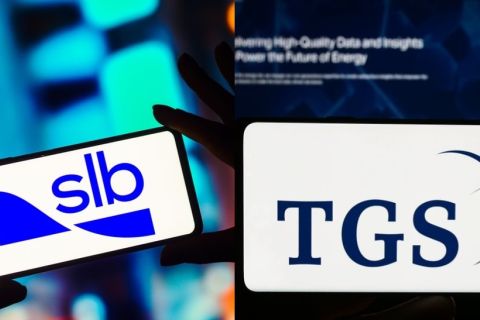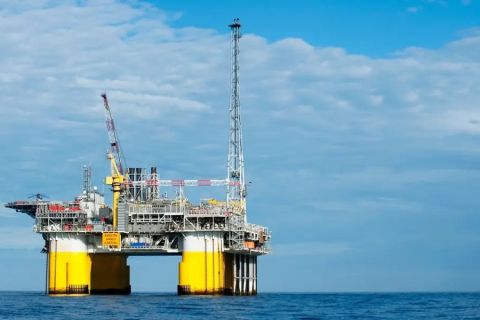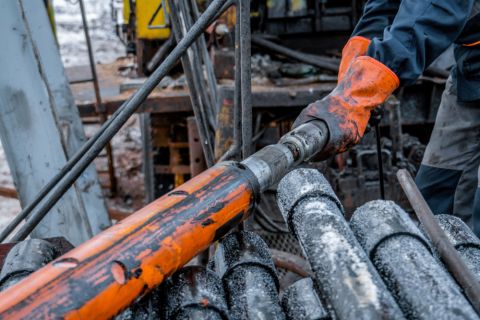Top oilfield services firm SLB will raise its quarterly dividend next year by 43% and resume a share buyback program, executives said on Nov. 3, offering an upbeat view of energy markets.
Although annual revenues have fallen every year since 2019, SLB should see revenue increase this year from last year’s levels and is targeting a 15% compound average revenue growth rate through 2025 from 2021 levels, officials said.
The company’s rosy outlook comes as oil and gas offshore activity is poised to surpass levels before the COVID-19 pandemic, on strong demand for fossil fuels production and on technologies to curb emissions.
“Upstream spending is very resilient,” CEO Olivier Le Peuch told investors at a conference in New York on Nov. 3, adding that he expects double-digit growth in energy sector capital investment in the coming years. Upstream investment in the Middle East could hit record levels, he said.
Oil prices this year climbed to their strongest in roughly eight years as Russia’s invasion of Ukraine led to disrupted energy supplies. Some economists fear rising energy prices could spark a global recession that cuts fuel demand.
SLB this year has benefited from increased oil drilling and production activity in North America. The broader industry is likely entering a “super cycle” despite some potential disruptions due to geopolitical risks.
Shares settled up 1.3% at $51.80. The stock is up almost 73% year-to-date.
The company next year will boost its quarterly dividend by 43% to 25 cents per share, and restart a share buyback program with a $9 billion authorization. The company aims to return a minimum of 50% of its free cash flow to shareholders in the coming years.
It will maintain capital spending levels at between 5% and 7% of revenue, CFO Stephane Biguet said on Nov. 3.
Formerly called Schlumberger, SLB rebranded itself in late October with a new name, logo and color scheme to reflect an increasing focus on its digital business and commitments to a lower-carbon future.
The company launched a New Energy business unit in 2020 and aims to generate $3 billion in revenue from that enterprise by the end of the decade, Le Peuch said. The business helps oil and gas customers reduce carbon emissions and develop cleaner fuels such as hydrogen.
Recommended Reading
AI Poised to Break Out of its Oilfield Niche
2024-04-11 - At the AI in Oil & Gas Conference in Houston, experts talked up the benefits artificial intelligence can provide to the downstream, midstream and upstream sectors, while assuring the audience humans will still run the show.
TGS, SLB to Conduct Engagement Phase 5 in GoM
2024-02-05 - TGS and SLB’s seventh program within the joint venture involves the acquisition of 157 Outer Continental Shelf blocks.
2023-2025 Subsea Tieback Round-Up
2024-02-06 - Here's a look at subsea tieback projects across the globe. The first in a two-part series, this report highlights some of the subsea tiebacks scheduled to be online by 2025.
StimStixx, Hunting Titan Partner on Well Perforation, Acidizing
2024-02-07 - The strategic partnership between StimStixx Technologies and Hunting Titan will increase well treatments and reduce costs, the companies said.
Tech Trends: Autonomous Drone Aims to Disrupt Subsea Inspection
2024-01-30 - The partners in the project are working to usher in a new era of inspection efficiencies.





